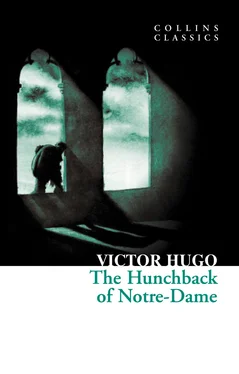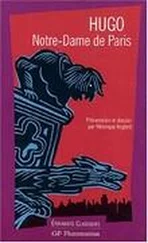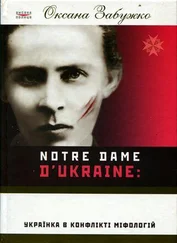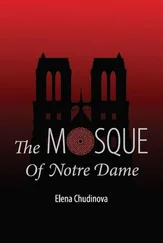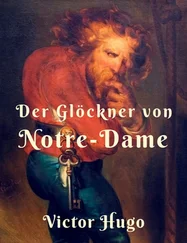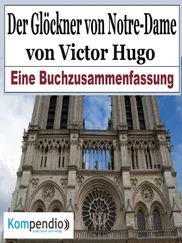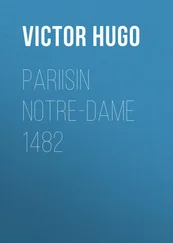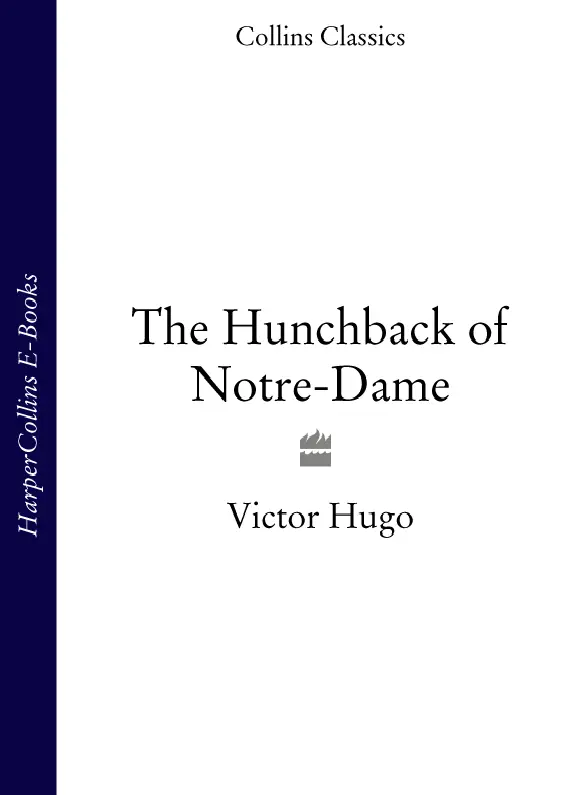
THE HUNCHBACK OF NOTRE-DAME
Victor Hugo
Cover
Title Page THE HUNCHBACK OF NOTRE-DAME Victor Hugo
Preface
Volume I
Book I
Chapter 1 The Grand Hall
Chapter 2 Pierre Gringoire
Chapter 3 Monsieur the Cardinal
Chapter 4 Master Jacques Coppenole
Chapter 5 Quasimodo
Chapter 6 Esmeralda
Book II
Chapter 1 From Charybdis to Scylla
Chapter 2 The Place de Greve
Chapter 3 Kisses for Blows
Chapter 4 The Inconveniences of Following a Pretty Woman Through the Streets in the Evening
Chapter 5 Result of the Dangers
Chapter 6 The Broken Jug
Chapter 7 A Bridal Night
Book III
Chapter 1 Notre-Dame
Chapter 2 A Bird’s-Eye View of Paris
Book IV
Chapter 1 Good Souls
Chapter 2 Claude Frollo
Chapter 3 Immanis Pecoris Custos, Immanior Ipse.
Chapter 4 The Dog and His Master.
Chapter 5 More About Claude Frollo
Chapter 6 Unpopularity
Book V
Chapter 1 Abbas Beati Martini
Chapter 2 This will kill that
Book VI
Chapter 1 An Impartial Glance at the Ancient Magistracy
Chapter 2 The Rat-Hole
Chapter 3 History of a Leavened Cake of Maize
Chapter 4 A Tear for a Drop of Water
Chapter 5 End of the Story of the Cake
Volume II
Book VII
Chapter 1 The Danger of Confiding one’s Secret to a Goat
Chapter 2 A Priest and a Philosopher are two Different Things
Chapter 3 The Bells
Chapter 4 ANArKH
Chapter 5 The Two Men Clothed in Black
Chapter 6 The Effect which Seven Oaths in the Open Air can Produce
Chapter 7 The Mysterious Monk
Chapter 8 The Utility of Windows which Open on the River
Book VIII
Chapter 1 The Crown Changed into a Dry Leaf
Chapter 2 Continuation of the Crown which was Changed into a Dry Leaf.
Chapter 3 End of the Crown which was Turned into a Dry Leaf
Chapter 4 Lasciate Ogni Speranza —leave all hope behind, ye who enter here
Chapter 5 The Mother
Chapter 6 Three Human Hearts Differently Constructed
Book IX
Chapter 1 Delirium
Chapter 2 Hunchbacked, One Eyed, Lame
Chapter 3 Deaf
Chapter 4 Earthenware and Crystal
Chapter 5 The Key to the Red Door
Chapter 6 Continuation of The Key to The Red Door
Book X
Chapter 1 Gringoire has many Good Ideas in Succession.—Rue des Bernardins
Chapter 2 Turn Vagabond
Chapter 3 Long Live Mirth
Chapter 4 An Awkward Friend
Chapter 5 The Retreat in which Monsieur Louis of France says his Prayers
Chapter 6 Little Sword in Pocket
Chapter 7 Chateaupers to the Rescue
Book XI
Chapter 1 The Little Shoe
Chapter 2 The Beautiful Creature Clad in White. (Dante.)
Chapter 3 The Marriage of Phoebus
Chapter 4 The Marriage of Quasimodo
Note
Classic Literature: Words and Phrases Adapted from the Collins English Dictionary
About the Author
History of Collins
Copyright
About the Publisher
A few years ago, while visiting or, rather, rummaging about Notre-Dame, the author of this book found, in an obscure nook of one of the towers, the following word, engraved by hand upon the wall:—
ANArKH .
These Greek capitals, black with age, and quite deeply graven in the stone, with I know not what signs peculiar to Gothic caligraphy imprinted upon their forms and upon their attitudes, as though with the purpose of revealing that it had been a hand of the Middle Ages which had inscribed them there, and especially the fatal and melancholy meaning contained in them, struck the author deeply.
He questioned himself; he sought to divine who could have been that soul in torment which had not been willing to quit this world without leaving this stigma of crime or unhappiness upon the brow of the ancient church.
Afterwards, the wall was whitewashed or scraped down, I know not which, and the inscription disappeared. For it is thus that people have been in the habit of proceeding with the marvellous churches of the Middle Ages for the last two hundred years. Mutilations come to them from every quarter, from within as well as from without. The priest whitewashes them, the archdeacon scrapes them down; then the populace arrives and demolishes them.
Thus, with the exception of the fragile memory which the author of this book here consecrates to it, there remains today nothing whatever of the mysterious word engraved within the gloomy tower of Notre-Dame, nothing of the destiny which it so sadly summed up. The man who wrote that word upon the wall disappeared from the midst of the generations of man many centuries ago; the word, in its turn, has been effaced from the wall of the church; the church will, perhaps, itself soon disappear from the face of the earth.
It is upon this word that this book is founded.
March, 1831.
VOLUME I
BOOK I
Three hundred and forty-eight years, six months, and nineteen days ago today, the Parisians awoke to the sound of all the bells in the triple circuit of the city, the university, and the town ringing a full peal.
The sixth of January, 1482, is not, however, a day of which history has preserved the memory. There was nothing notable in the event which thus set the bells and the bourgeois of Paris in a ferment from early morning. It was neither an assault by the Picards nor the Burgundians, nor a hunt led along in procession, nor a revolt of scholars in the town of Laas, nor an entry of “our much dread lord, monsieur the king,” nor even a pretty hanging of male and female thieves by the courts of Paris. Neither was it the arrival, so frequent in the fifteenth century, of some plumed and bedizened embassy. It was barely two days since the last cavalcade of that nature, that of the Flemish ambassadors charged with concluding the marriage between the dauphin and Marguerite of Flanders, had made its entry into Paris, to the great annoyance of M. le Cardinal de Bourbon, who, for the sake of pleasing the king, had been obliged to assume an amiable mien towards this whole rustic rabble of Flemish burgomasters, and to regale them at his Hôtel de Bourbon, with a very “pretty morality, allegorical satire, and farce,” while a driving rain drenched the magnificent tapestries at his door.
What put the “whole population of Paris in commotion,” as Jehan de Troyes expresses it, on the sixth of January, was the double solemnity, united from time immemorial, of the Epiphany and the Feast of Fools.
On that day, there was to be a bonfire on the Place de Grève, a maypole at the Chapelle de Braque, and a mystery at the Palais de Justice. It had been cried, to the sound of the trumpet, the preceding evening at all the cross roads, by the provost’s men, clad in handsome, short, sleeveless coats of violet camelot, with large white crosses upon their breasts.
So the crowd of citizens, male and female, having closed their houses and shops, thronged from every direction, at early morn, towards some one of the three spots designated.
Each had made his choice; one, the bonfire; another, the maypole; another, the mystery play. It must be stated, in honor of the good sense of the loungers of Paris, that the greater part of this crowd directed their steps towards the bonfire, which was quite in season, or towards the mystery play, which was to be presented in the grand hall of the Palais de Justice (the courts of law), which was well roofed and walled; and that the curious left the poor, scantily flowered maypole to shiver all alone beneath the sky of January, in the cemetery of the Chapel of Braque.
Читать дальше
